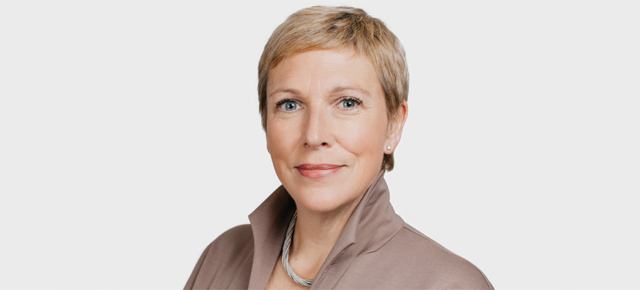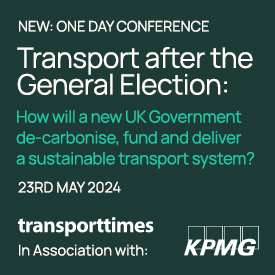Transport minister Baroness Vere offered new insights into her thinking on buses at an online meeting of the Young Bus Managers Network last week

With a few notable exceptions we’ve seen some pretty unenthusiastic buses ministers over the years. Baroness Vere is not one of them.
It has now been more than two years since the former government whip was appointed parliamentary under secretary of state at the Department for Transport. Her role also covers roads, taxis, light rail and devolution, including union connectivity and London transport, but buses appear to be at the top of her in-tray. They are, after all, at the heart of the prime ministers domestic agenda, with a new National Bus Strategy for England, a £3bn funding pot and a ambitious timetable for change.
In the foreword to our special publication, Beginning the Bus Revolution: Building on the National Bus Strategy for England, which accompanies this edition of Passenger Transport, Vere hails the bus strategy as “the biggest shake-up to buses in a generation to deliver transformational changes for passengers nationwide”. England’s bus sector is bubbling with questions about how it will deliver that transformational change while navigating it way through the Covid crisis and recovery.
Fortunately, Vere is one of the most visible buses ministers we have seen. Unable to attend many live events due to the pandemic, she has fielded questions in a series of online forums. The most recent of these was a Zoom meeting of the Young Bus Managers Network last week. It provided a number of insights into her thinking on key issues.
‘They absolutely have to’
Vere has previously said that “recalcitrant” local authorities who fail to respond to the requirements of the strategy, and its ambitious timetable for change, are the issue that keep her awake at night. She told the audience of young bus managers that she planned to provide resources to help and inform elected representatives as well as council officers.
“Politicians of my party can be just as bad as politicians of any party in terms of not liking buses,” she said. “The Bus Centre of Excellence is for elected representatives as well. I’ve had a number of conversations now with various groups of local authority leaders and been really clear to them that there’s no two ways about this. They don’t have an option as to whether to participate or not. They absolutely have to. So actually they are going to have to start upskilling their own knowledge about buses.”
She continued: “They’ve got to grasp the bull by the horns and make sure that they know what they are talking about when it comes to buses.”
‘Time is running out’
In response to a question about the strategy’s ambitious timetable, which requires local transport authorities to submit detailed Bus Service Improvements by the end of October, Vere was unapologetic.
“You have to have an ambitious timetable because actually time is running out. We don’t want further decline in buses. None of us wants that. And I think that the timetable is achievable.”
Vere recalled a recent conversation with one local authority. “He said to me, ‘Oh wow, minister, you realise if we are going to have it done by the end of October it will have to go through the approvals process at the beginning of September’. I’m sorry, but if it takes you two months to do your approvals process that is not my problem, that is yours.
“So I think we do need to see a little bit more agility within the local authorities. As I said, this is not a one off. The Bus Service Improvement Plans will be repeated every year, so if they don’t get it perfect the first time it doesn’t matter because there is an opportunity to make it better.
She concluded: “They can complain all they like, but really they should know more about transport in their area.”
‘There will be funding’
Vere was asked what funding would be available to support local bus services after the Covid-19 Bus Services Support Grant (CBSSG) ends and patronage remains below pre-pandemic levels.
“We can’t carry on CSSBG on forever because it doesn’t really get us back to where we want to be,” she responded. “But there will be some interim funding which will take into account the gap from the end of CSSBG up until the end of this financial year.”
She added: “So there will be recovery funding. I accept that it’s not known at the moment what it is. All I can say is that discussions are ongoing and in due course we will need to consider how that is distributed. It is in hand. We will try and let you know as soon as possible how the recovery funding will work.”
‘Free-for-all is gone’
The National Bus Strategy requires bus operators to work with local authorities to create co-ordinated bus networks. The deregulated system that has existed since the 1980s remains, but it will operate very differently in future. Vere was asked whether this would end head-to-head competition between operators, and whether this would reduce consumer choice.
“I think we will see the end of that style of competition, because that style competition doesn’t really help the consumer,” said Vere. “Competition won’t be eradicated. That’s not what we’re trying to do here at all – but what we don’t want is two operators competing on exactly the same routes.”
She emphasised the need for bus operators to work with local authorities and suggested that “part of profitability is not is not just getting profit out of existing passengers, it is going to be about growing passengers”.
Concluding her remarks, she said: “The bad old days of free-for-all is gone. That doesn’t mean the bus operators are not going to make a profit. They will just make it in a different way.”
‘A rock and a hard place’
In response to a question about new bus priority measures, Vere said that “road space reallocation and how it’s done is going to be one of the challenges of our times”.
“I think bus priority will be more acceptable if the services are better, and I think that’s where the government can slightly help in that we can provide the funding to get over the hump whereby people go, ‘Oh, the bus is cool, I’m going on the bus’,” she said.
It was suggested to Vere that councillors might fear being voted out of office if they supported the introduction of new bus priority measures. “The alternative to that will be that if they don’t put in bus priority they don’t get any bus funding and they’ll still be voted out at the next election,” she said. “So I have given them a rock and a hard place and they are going to have to choose it.”
‘We’ll support campaign’
Vere was asked about efforts to encourage people back on board buses as restrictions are removed and achieve modal shift.
She responded: “We are working very closely with CPT, which obviously represents many of the bus operators. They are doing a national campaign and we will be working and supporting them in doing that national campaign. Certainly from our perspective we will be out doing visits and getting as much publicity as we can. We’ll see how successful that is. Obviously it can’t happen yet, just while we are still in restrictions. But I know that it will happen as soon as restrictions are finished and we can get people back on buses properly.”
Addressing the issue of modal shift, she said: “It’s always been the view of the Department for Transport, it’s the right mode for the right journey. And if I go from my house to the shops getting in my car is not the right mode. We just need to make sure that people understand that; there is a much more efficient and effective way – that is getting the bus.”
Road pricing on the way?
Vere was asked whether local congestion charging schemes or national road pricing might be used to encourage modal shift. She did not endorse these policies but she left the door open.
“At some stage our need to significantly reduce our carbon emissions will also come into play here,” said Vere. “We’ve got a very long way to go and we’ve got to look at all the levers that we have. So at the moment government doesn’t have a policy on road pricing but it certainly is the case that we will be helping local areas to do their own developments as much as we can whilst we grapple with how are you going to cope with the carbon.
Vere said that the government’s Transport Decarbonisation Plan, which is due later this year, would be “interesting”.
This article appears alongside further coverage in the latest issue of Passenger Transport.
DON’T MISS OUT – GET YOUR COPY! – click here to subscribe!







